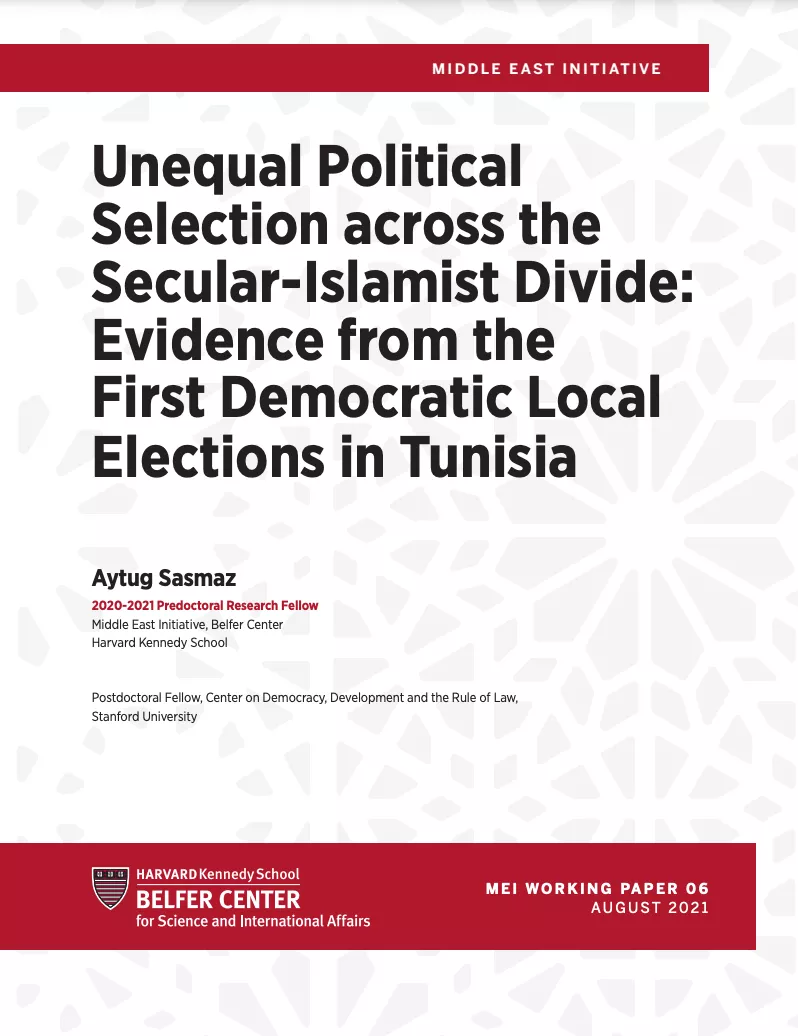
Just before the local elections, I had an interview with a prominent female candidate of Ennahda in one of the northwestern towns. This region of Tunisia is a stronghold of the leftist union movement, as a result of intensive mining activities during the colonial era. The candidate I talked to was a well-known “syndicalist of the town,”i.e. an activist at the local labor union, and had been working for several years as an administrator at the local hospital. As a highly regarded figure, she would inexorably be a “valuable” asset for any party. She told me that everybody around her, including the head of the local branch of the union, her son, and her daughter, was surprised, even angered, by the fact that she had become a candidate under the wings of the Islamist party. When I asked her why she made the decision, she said: “I want to work for my town, I want to do social work. Ennahda approached me and offered me a candidacy. I accepted because I wanted to observe Ennahda from the inside. I wanted to see how their organization works like a machine.” I asked whether other parties approached her or whether she considered other parties to join. She said that only Ennahda had reached out to her. She would not consider candidacy from other parties, because they “do not put forward suggestions; they cannot solve problems.” Put differently, she was convinced that, even though she was not an Islamist, the Islamist party was a reliable organization she could join as a candidate. In the 2018 local elections, the main secular party of the country at the time, Nidaa Tounes, lost considerable ground in this town, while the Islamist party considerably increased its vote share.
This one example suggests that the Islamist party might have held an advantage in candidate selection over the main secular party in Tunisia in these“foundational” local elections of 2018. To find out whether this finding is generalizable, this paper compares the candidate cohorts and candidate selection patterns of the two main parties, using a novel candidate survey. The findings suggest that the candidate cohort of the main secular party was significantly less educated and less civically engaged than that of the Islamist party, even though their parents were more likely to have held office and be more educated. In other words, individual merits of the Islamist party candidates were considerably higher than the secular party candidates. Combination of the candidate data with a contemporaneous household survey shows that the secular party suffers from a relatively negative political selection, because the secular voter base has a higher share of well-educated citizens.
Using interviews and a conjoint experiment with party officials, the paper also explores the potential sources of this difference in candidate quality and political selection patterns. Findings suggest clear evidence on the role of party-related factors: Secular party elites are likely to prioritize loyalty to particular factions within the party, while the Islamist party is adopting policies to recruit competent candidates. In other words, there is a clear difference between what the parties demand. On the other hand, suggestive evidence from surveys shows that there can also be supply-side reasons, i.e. what type of citizens from both secular and Islamist camps are making themselves available for party activism and candidacy. A combination of both demand-and supply-side reasons, most probably, leads to an Islamist advantage and secular disadvantage in political selection. I argue that this difference is consequential for the future of secular-Islamist competition in Tunisia and elsewhere in the Middle East and North Africa region.
Sasmaz, Aytug. “Unequal Political Selection across the Secular-Islamist Divide: Evidence from the First Democratic Local Elections in Tunisia.” August 2021



